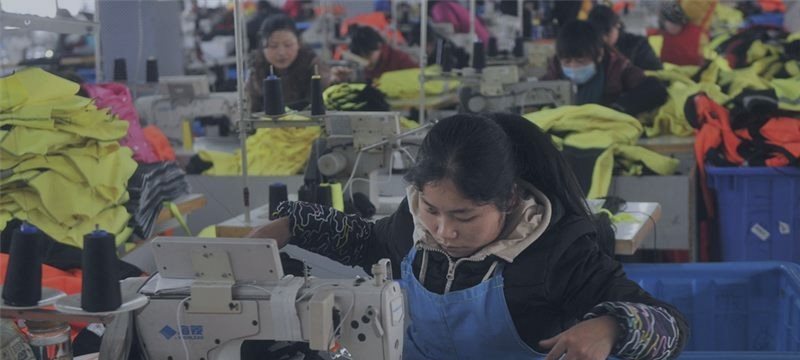About twenty-five years ago, Ni Meijuan got 19 u.s. dollars a month working as an operator in a spinning textile mill in the city of Hangzhou in China.
Currently at the cotton mill Keer in South Carolina, which opened last April, Ni teaches how to do ordinary work that he did for U.S. workers.
"They are learning fast," said Ni after showing how to clean tufts of cotton on the wheel grinder to two new employees. "But they have to be faster."
After becoming an example of low-cost mass-manufacturing industry, textile manufacturer, originally from low-cost countries began to set up shop in the us.
This is a vague part of what usually becomes clear limits between low-cost production of high and low production cost countries has been estimated some experts a decade ago.
Textile production in China is increasingly unprofitable after years of rising wages, the cost of electricity and loading logistics more expensive, increasing import quotas in line with the Government.
The same time, production costs in the u.s. are increasingly able to compete. In the area of Lancaster, who is Indian, Keer found locals are desperately looking for a job, though for cheap paid, where cheap land is also very much, as well as electricity and subsidised cotton.
Politicians, from the area to the Centre, vying to give Keer grants and tax relief so that they bring back the employment industry sectors which according to them is lost forever.
The prospect of a trade agreement for the entire Pacific region, led by the US, with the exception of China, also making yarn-producing companies of China got a foothold here, keep them out of the lucrative u.s. market.
Industry worth 218 million u.s. dollars of yarn twisting Keer raw cotton to be sold to textile makers across Asia.
Currently Keer still do most of the spinning of yarn on cotton China, raw materials imported from the us, and this is slowly starting to change.
"The reason for the U.S. move to Keer? Incentives, land use, environment, and labor, "said Zhu Sanqing Keer, officials, while his visit to the us recently.
"In China, the whole industry spinning yarn began to suffer losses," it added. "In the u.s., his condition is very different." https://www.mql5.com/en/signals/120434#!tab=history



